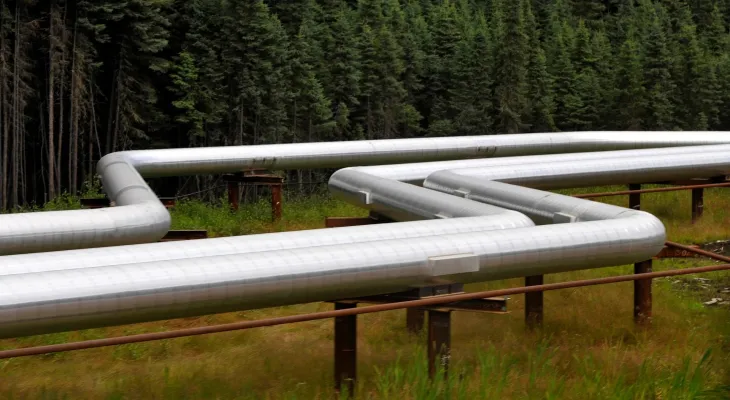Search here
Newspaper
Search here

Arab Canada News
News

Published: March 12, 2022
After U.S. President Joe Biden's decision to ban the import of Russian oil derivatives, the Canadian government began revealing its vision and plans to increase crude oil exports to the United States and meet Europe's needs.
Canadian Natural Resources Minister Jonathan Wilkinson said yesterday, Thursday (March 10), that Canada is considering increasing the utilization of pipelines to boost crude oil exports.
During a phone interview with Reuters agency, the minister stated that the goal of this step is to achieve a gradual increase in exports to Europe, at a time when the old continent seeks to reduce its dependence on Russian oil.
Canada exports more than 4 million barrels of oil daily to the United States, and a small portion is subsequently re-exported to other countries.
Discussion with Europe
After Russia's invasion of Ukraine, Canada and other countries announced a halt to the import of Russian crude oil.
In light of escalating events, the Canadian minister explained that he will head to Paris within two weeks to attend an International Energy Agency meeting to understand Europe's future needs.
The Keystone XL pipeline stirs controversy again
The minister said that the war in Ukraine revealed that European countries cannot continue to rely on Russian oil and gas, adding that future discussions with Europe will revolve around the transition from natural gas to hydrogen.
He pointed out that the government is studying increasing pipeline flows with industrial sectors, and a response is expected on what Canada can do within the next week.
Canadian companies
At the same time, Canadian company Enbridge stated in a statement that it is in talks with the government regarding the role of the sector and its assistance in easing the current energy crisis.
Most Canadian crude oil exports are transported to the United States through the Enbridge Mainline systems, alongside the Keystone pipeline owned by TC Energy with a capacity of 590,000 barrels per day.
The company clarified in its statement that all liquid and natural gas systems are operating at nearly full capacity, but it is exploring options to provide more supplies to the United States and Europe, including the use of crude oil and natural gas export facilities on the Gulf Coast.
Mark Little, CEO of Suncor Energy, expects Canadian production to rise by hundreds of thousands of barrels this year with rising prices.
Canadian oil companies exported record amounts of crude oil from the U.S. Gulf Coast at the end of 2021, most of which was transported to India, China, and South Korea.
Producer hesitation
Even if Canada is able to increase the export capacity of pipelines, many producers are currently reluctant to adjust spending plans to increase production.
Major oil companies refuse to invest in Canadian oil sands—the world's fourth-largest oil reserve—under pressure from investors and environmentalists, yet production is expected to continue for another two decades and possibly more after local companies intervene to continue operating existing projects.
Despite extensive efforts to shift the global economy away from fossil fuels, alternative energy sources have not met current demand, which means companies continue to pump oil even from carbon-intensive sources, according to The Wall Street Journal.
Canadian oil and the United States
Environmental advocates view the Russian oil ban decision as an opportunity to transition to renewable energy, but North American oil companies do not share the same views and see it as a chance to achieve financial gains.
Maintaining Canadian oil sands exacerbates the global supply crisis
According to Bloomberg, Suncor Energy CEO Mark Little said that Canada can supply the United States with nearly a third of the oil it buys from Russia.
This was a key point of discussion during the Serawik conference, as the United States imports about 700,000 barrels of Russian oil, and because of this, the Canadian fossil fuel industry began questioning why the Keystone XL pipeline was stopped and started looking for alternatives from other countries in South America, instead of Canada.
In light of this, Alberta’s Energy Minister Sonia Savage sees Canada as the solution, not Venezuela or others.
Comments